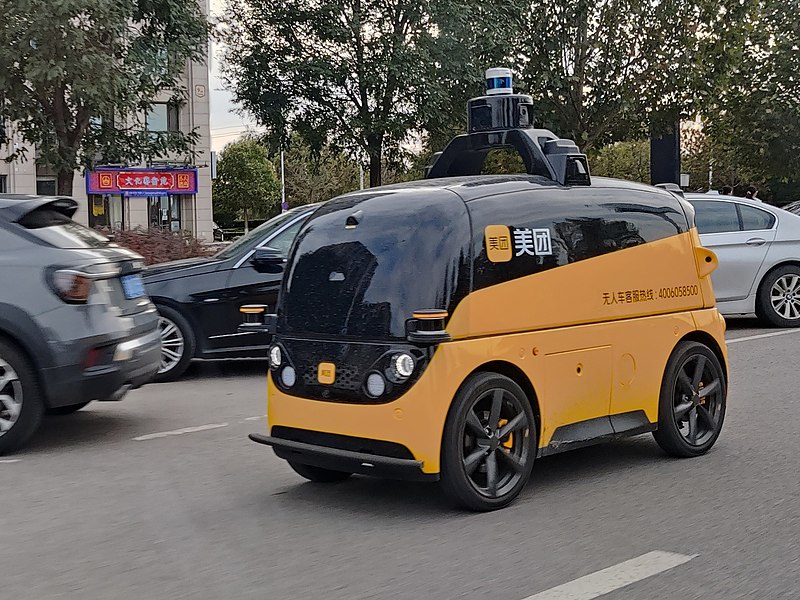News release
From:
A future of autonomous vehicles delivering junk food 24/7 is coming, health researchers warn
The ice cream truck of the future could be driverless and operate 24/7 spruiking junk food and alcohol, while delivery bots could clog up footpaths, unless governments step in, according to new research published today.
The new study, published in the Australian and New Zealand Journal of Public Health, involved interviews with 40 experts across the technology, transport, government and health sectors to identify common themes, concerns and trends.
Research leader, Prof Simone Pettigrew, Head of Food Policy from the George Institute for Global Health, says that automated and driverless vehicles are expected to be the dominant form of road transport by 2050.
“Experts agreed that driverless vehicles will inevitably be used as an extension of current on-demand food and grocery delivery services – it’s a matter of when, not if, this happens,” Prof Pettigrew says.
“We are already seeing trials of the technology in Australia.
“It’s convenient, but the concern is the impact this will have on population health. Food delivery is widely associated with unhealthy food and we believe food delivery apps are already feeding obesity rates through junk food availability and reductions in incidental exercise. The experts we spoke to agreed new automated food delivery systems could exacerbate these trends.
“Imagine the implications if a robot is in your street advertising and selling soft drink, or a drone can bring fries to your backdoor without you even stepping into the street. Convenience could come at the cost of health,” says Prof Pettigrew.
The findings have prompted the Public Health Association of Australia (PHAA) to urge Governments and policy makers to ensure they proactively anticipate future trends in food delivery to help prevent negative health outcomes.
“Much of these delivery systems can go straight to kids, bypassing parental controls. This is another example of technology being well ahead of our regulatory systems. As we continue to face an obesity crisis that has disappeared from the headlines, we are simply unprepared to protect the community,” PHAA CEO, Adjunct Prof Terry Slevin, says.
“We shouldn’t wait for this to become a problem – we need pre-emptive policy now or we will be left trying to retro-fit regulation to something that already exists.”
While acknowledging the issue is complex and requires a sophisticated response, the study does include some of the policy measures experts think Governments could consider, including:
- Outright bans – for instance banning delivery bots on footpaths to keep other users safe
- Advertising restrictions on the surface of vehicles
- Location restrictions – for instance banning the use of these sorts of technologies offering junk food near schools
- Higher licence fees for activities that do more harm – for instance automated vehicles promoting junk food
ENDS



 Australia; VIC
Australia; VIC


